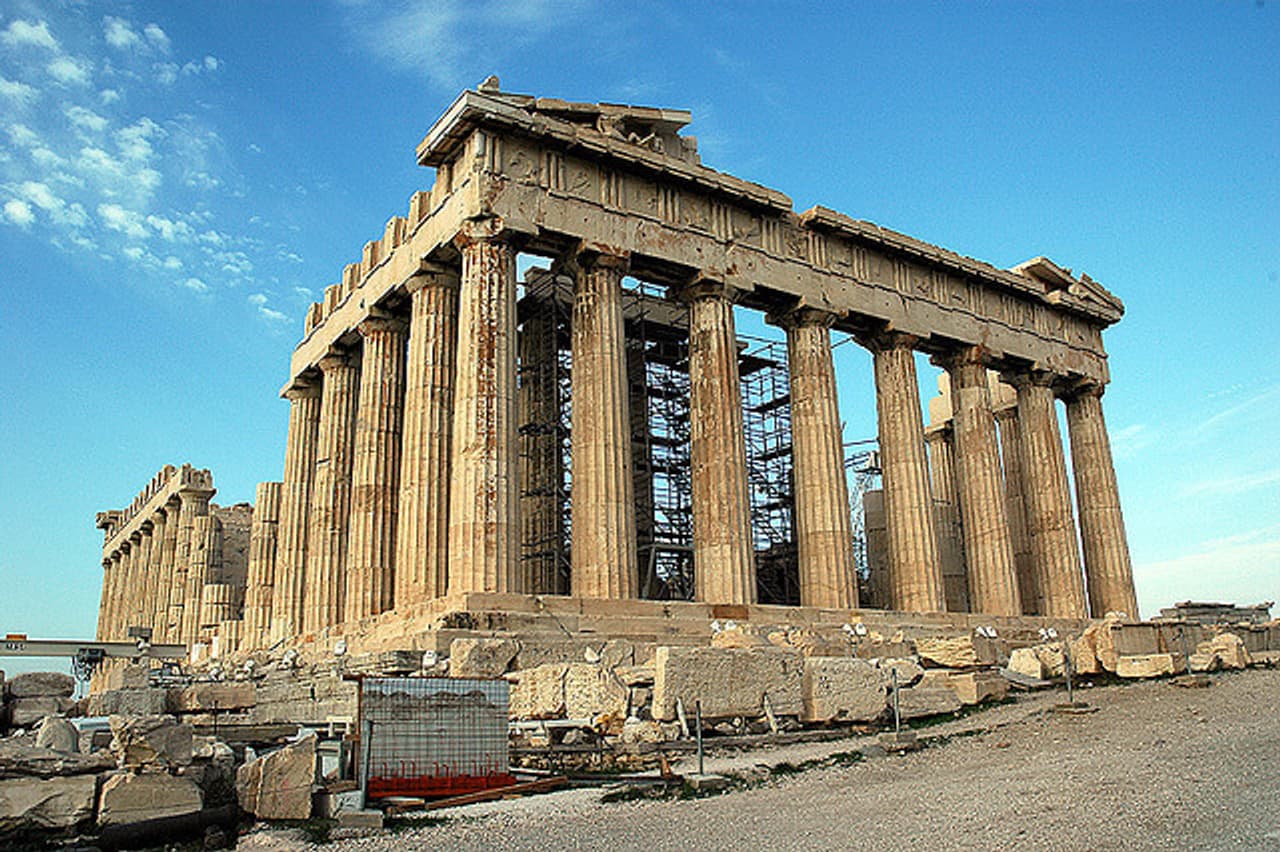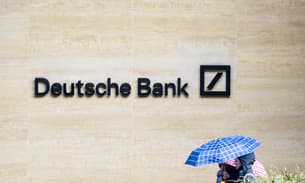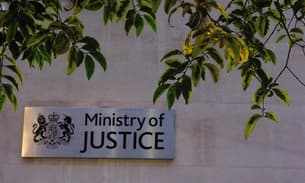
How Goldman Sachs helped mask Greece’s debt
The 2,500 year-old Parthenon – still standing while Greece crumbles
Yesterday European finance ministers agreed a second bailout for the Greek Government, worth more than 130 bn Euros. In light of the country’s staggering debt, and the risk it poses to the health of the entire Eurozone, it now appears that Greece should not have been permitted to join the Euro in the first place. So, why was it?
Nick Dunbar’s film on last night’s BBC Newsnight set out to provide at least part of the explanation.
The film shed new light on a slight of hand orchestrated by the investment bank Goldman Sachs, that allowed a large chunk of Greek public debt to seemingly disappear, and for the country’s finances to appear in better shape than they were in reality.
Back in 2001, the Greek government was pondering how it could meet the conditions of Euro membership. A key requirement of the Maastricht criteria, five criteria that determine whether an EU country is ready to adopt the euro, was that member states show ‘directionality’ in their public debt.
This meant that the country’s debt ratio needed to be going down year on year: ‘The national debt should not exceed 60% of GDP, but a country with a higher level of debt can still adopt the euro provided its debt levels are falling steadily’.
The solution they came up with was not to cut spending or raise taxes, as Dunbar incredulously points out, but to attempt to hide their debt. Enter Goldman Sachs, global investment banking and asset management company.
Newsnight revealed that one of the Goldman Sachs bankers hatched an ingenious plan to strike a financial deal called a ‘swap’ with the Greek Government, using it to hide 2.8bn Euros of national debt. The deal was legal but completely secret.
Back in 2003, Nick Dunbar revealed the existence of this deal. Far from ‘making something out of nothing’, as the Greek authorities alleged, Dunbar was very much on the right track. The new revelation made in last night’s film was that of the role played, or perhaps more accurately not played, by the European accounting agency, Eurostat.
Goldman Sachs passed Newsnight an email showing that they covered themselves by discussing the deal with Eurostat. Eurostat dismiss this discussion as having only concerned ‘general clarifications’, and maintain that they only became aware of the deal in 2010.
But regardless of exactly when European institutions, such as Eurostat, became aware of this deal, major concerns remain over why more attention was not paid to the employment of untested and unregulated financial products by European States. emerging from the innovation boom in the banking sector.
The deals were commonplace, Goldman Sachs said in their statement to Newsnight: ‘The swaps were one of several techniques that many European governments used to meet the terms of the [Maastricht] treaty.’
Last night’s film gained access to one of the key figures responsible for the deal, Christoforus Sardelis, then head of the Greek Public Debt Management Agency. He had been tasked with the job of bringing the national finances in line with Maastricht criteria.
With hindsight, it’s apparent to Sardelis that the deal was problematic. Under its terms, Goldman Sachs has made millions from the Greek government, yet the original 2.8bn Euros of debt has now ballooned to 5.7bn Euros. Nevertheless, this is a drop in the ocean of Greece’s £350bn debt.
To Sardelis, the deal may have been a bad one, but it wasn’t the cause of his country’s current woes, he says in the film. ‘It was a very sexy story, between two sinners, but the European crisis is not the child of the sex we had with Goldman Sachs’, he, rather salubriously, commented.
Watch the full programme here.




